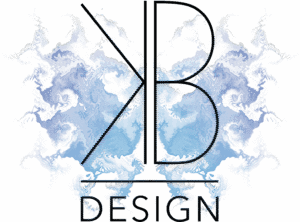For those new to website building and blogging, navigating the various platforms and tools available can be quite overwhelming. One common confusion is the distinction between WordPress.com and WordPress.org. While both platforms share the name “WordPress,” they serve different purposes and offer distinct features. In this article, we’ll break down some of the key differences between WordPress.com and WordPress.org to help you make an informed decision for your online venture.
A comparison guide to get you started
| Features | WordPress.com | WordPress.org |
| Hosting & Maintenance | Hosted on WordPress servers; Managed updates, security, and backups. | Self-hosted; You manage hosting, updates, security, and backups. Can often set up WordPress.org through your host. |
| Ease of Use | Simple to create an account and select a plan. User-friendly interface with setup guide. | User-friendly, requires more technical know-how to set-up. |
| Customisation | Limited customisation options for themes, plugins, and advanced features. | Extensive customisation with thousands of themes and plugins. |
| Price | Free plan displays WordPress.com. Plans from £0 – £70 p/month | Varies from under £100 p/year to much, much more – depending on the hosting and any premium services used. |
| Domain Name | Free plan includes “wordpress.com” in domain; Paid plans offer custom domain | You must acquire and manage your own domain |
| SEO Control | Limited control over SEO optimisation, higher plans unlock this feature | Full control over SEO and optimisation. Can install any SEO plugin. |
| Ownership & Control | Less control and ownership; Hosted on WordPress.com platform | Full ownership and control of website |
| Responsibility | Minimal maintenance responsibility | Manage updates, security, and backups yourself |
| Technical Expertise | Suitable for beginners; No technical skills required | Requires a small learning curve or outsourcing. |
| Security | Secured within the platform, which comes with any platform limitations. | The option to have various security measures in place and install plugins to optimise security. |
| Performance | Uses WordPress.com’s hosting service on the free/lower plans. | You can choose the hosting level/service and install plugins to optimise performance at any time. |
| Aimed at | Complete beginners, with no technical knowledge wanting little customisation. Just click and go! | All abilities. Newbies and non-tech minded folk may find all the options overwhelming to start with. |
WordPress.com: Simplicity with Limitations
WordPress.com is a user-friendly, hosted platform that provides an easy way to create and manage a website without needing any technical expertise. It’s an excellent choice for beginners who want a hassle-free experience. Here are the key points:
- Hosting and Maintenance: With WordPress.com, you don’t need to worry about finding a hosting provider or dealing with technical maintenance tasks. Your website is hosted on WordPress.com’s servers, and they handle the nitty-gritty details like security, updates, and backups.
- Ease of Use: The user interface is intuitive and straightforward. You can choose from a variety of pre-designed themes and templates to personalize your website’s look. This allows you to quickly personalize the appearance of your website without diving into complex design concepts.
- Limited Customisation: While you can customise your website to some extent, WordPress.com has limitations on themes, plugins, and advanced customisation options. You’re confined to their predefined tools and features. You have to upgrade your plan to access some of these extra features.
- E-commerce: To build a shop on WordPress.com, you must choose the eCommerce plan, which includes payment processing and integration with shipping providers. You can sell an unlimited number of products and integrate support tools for social media and email marketing.
- Domain Name: On the free plan, your website’s domain will include “wordpress.com” (e.g., yoursite.wordpress.com). To have a custom domain (e.g., yoursite.com), you’ll need to purchase it separately or upgrade to a paid plan. I recommend purchasing your domain from a third-party domain provider.
WordPress.org: Flexibility and Control
WordPress.org, often referred to as self-hosted WordPress, gives you more control and flexibility over your website. It’s a popular choice for bloggers and businesses who want to customise their site to the fullest or have full control of their website management. It’s also a winner if you’re a small, but growing business and want to have complete flexibility so that your website can grow at the same speed as your business. Here’s what you need to know:
- Hosting and Ownership: With WordPress.org, you need to secure your own hosting and domain. While this requires some research or may seem intimidating (or possibly require some technical know-how), most hosting providers offer 1 click WordPress installation these days, and it means you have complete ownership of your website and can move it to any hosting provider you choose in the future. **If you’re looking for hosting recs, my current favourites are Hostinger* (my current host and perfect for a small site – 20% off) and Siteground* (tried, tested and loved!).**
- Unlimited Customisation: The world is your oyster with WordPress.org. You can choose from thousands of free and premium themes, as well as the ability to install plugins to enhance your website’s functionality and appearance. The possibilities for customisation are virtually limitless.
- E-commerce: There’s lots of options to build an online store with WordPress.org using a plugin, the most popular being WooCommerce. It’s free to use and works with a variety of payment providers – you might find it most beneficial alongside other premium themes and extensions.
- Advanced SEO: WordPress.org provides better control over search engine optimisation (SEO), allowing you to optimise your website’s performance for search engines and potentially improve its visibility.
- Maintenance Responsibility: While you have more control, you also need to manage your website’s updates, security, and backups. This can be done independently or through third-party services.
So, which WordPress should you use?
Essentially, the choice between WordPress.com and WordPress.org depends on your goals, technical comfort, and desired level of control. If you’re looking for simplicity and no upfront costs, then WordPress.com is a solid option. However, if you’re excited about owning a unique, customisable website and want complete control over your content, WordPress.org offers the flexibility you’re looking for.
Whichever you choose, remember that both platforms cater to different needs and can empower you to establish a captivating online presence.
Want to find out which platform works for you? If you’re starting a website project soon and not sure what suits the project, we can discuss this in your free consultation, where we look at project needs and expectations.
Can’t wait to hear from you!
*Affiliate link, I may earn a small commission if you use this link to purchase your hosting







